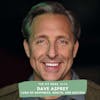Ice Cold Insights: The Mind-Body Connection of Cryotherapy

Cryotherapy or cold therapy is a revolutionary approach to health and wellness. Its multitude of benefits, from reducing inflammation and promoting muscle recovery to alleviating stress and enhancing mental resilience, make it a powerful addition to...
Cryotherapy or cold therapy is a revolutionary approach to health and wellness. Its multitude of benefits, from reducing inflammation and promoting muscle recovery to alleviating stress and enhancing mental resilience, make it a powerful addition to any wellness routine. In this episode we explain how we use it to unlock a new level of physical and mental well-being, paving the way for a healthier, more resilient future. However, as with any new therapy, it's essential to proceed with caution and consult a healthcare professional before incorporating cryotherapy into your lifestyle.
Topics Discussed:
- Introduction to cryotherapy and its benefits
- Reducing inflammation and promoting muscle recovery
- Stress reduction and mental resilience
- The impact on mental health and building resilience
- Cryotherapy as a tool for enhanced mental clarity
- The significance of controlled stress exposure
- Cryotherapy's positive influence on sleep patterns
- Precautions and safety considerations
----
MORE FROM THE FIT MESS:
Get bonus clips and additional resources in our newsletter!
Connect with us on Twitter, Instagram, Facebook, and Tiktok
Subscribe to The Fit Mess on Youtube
Join our community in the Fit Mess Facebook group
----
LINKS TO OUR PARTNERS:
-
Explore the many benefits of cold therapy for your body with Nurecover
-
Muse's Brain Sensing Headbands Improve Your Meditation Practice.
-
Get a Free One Year Supply of AG1 Vitamin D3+K2, 5 Travel Packs
-
You Need a Budget helps you quickly get out of debt, and save money faster!
-
Use Vibrant Blue Oils to improve the flow of energy through your body.
Zach: [00:00:00] Have you ever wondered if there's a quick and easy way where you can uplift your mood, reduce your stress, boost your mental resilience, and have a whole bunch of muscle recovery in the process
Jeremy: in this episode, we're gonna talk about a therapy that can help you with all of this, and it's cooler than you might think.
Zach: So I have video evidence that I'm cold-hearted.
Jeremy: Really
Zach: Yes, I do. , Well, I've been getting back into, , regular cryotherapy sessions, so I've been cooling my body to, , negative 220 degrees
Fahrenheit,
Jeremy: That just doesn't seem
safe. That just doesn't seem safe.
Zach: No, it's okay. I mean, I, I got a little tick that keeps developing [00:01:00] now, but I'm okay.
Jeremy: Okay? But, but freezing. Freezing is zero degrees Celsius, 32 degrees Fahrenheit. You're getting into minus 212. That's like Mars.
Zach: Not quite. I think Mars is a little bit
Jeremy: I, I'm, I'm, I'm no, uh, space scientist. I don't know these things, but that seems very cold. That seems very painful. Why? Why that cold? Tell me more.
Zach: Well, just wanted to know what my ancestors lived. No. Um it's for a multitude of reasons, but specifically for me, like I, I've said this multiple times on the show, I get inflamed very easily if I eat bread. If I eat, I anything. My muscles
Jeremy: Any anything.
Zach: If I, if I look at a bowl of pasta, like my, like I just, my body's so sensitive to things like, you know, medications and things like that.
Like what most medications that I've ever taken in my entire life are like, Hey, this is what it's here for, and then here's the 15 super [00:02:00] rare side effects. And I get them all right. Like my body is just so sensitive. So like I get muscle inflammation. And I do the cold therapy because that those inflamed muscles all the time in my body it's chronic.
So it can cause long-term damage. But just bringing that pain level down cuz I'm, , maybe it's all the CrossFit I do, bringing the pain level down just a little bit is it eases my anxiety, it eases my mind just a little bit. , that's the main reason I do it. So, muscle recovery is one, there's a, there's a bunch of other reasons why it's good for you.
. But I know you like to go sit in like, , cold water, that's like, like 40 degrees Fahrenheit. I mean,
Jeremy: that's that's a little balmy. That's a little warm for me. I, I'd like it a little cooler than that. ,
Zach: do you go in below freezing?
Jeremy: Oh yeah, for sure. Yeah. Usually like in the winter, because I, I like to go out in nature. I like to go out in the lakes. I like to go in the rivers. And so, you know, when you measure it, it's, it's, you know, 20 something.
If it's, , a big lake or it's moving a moving stream, , it's ice water. [00:03:00] It's very cold. and I like to hang out in there for 2, 5, 10 minutes, however long my, my body can handle it. So that's, I'm curious at, at negative two 12, I don't imagine you're, uh, just hanging out
Zach: No, it's three minutes only.
Jeremy: intense.
Zach: that's, that's the max that they'll let you do. But, you know, it's, it's definitely not nature. And you know what's really funny is, you know it, for me, it's all tech, right? So it's all technology. It's this big chamber that you get into and it's very, if you're claustrophobic, you, you might hyperventilate in there and then you're breathing in super cold air.
So then you think you're damaging your lungs and then you hyperventilate more. But they play music for you. And every time they're like, what music do you like? And I was like, just play me anything except country, please. And like, the most common song that I hear now, and I don't know, I, I just don't know why. It's the notorious b i g hypnotized that I listened to for three minutes and I heard it like on, I just had, you know, Spotify playing a random station and it came on and I shivered.[00:04:00] It was 90 degrees out and I shivered.
Jeremy: It's just psychologically taken over. That's so funny.
Zach: But now cold therapy is one of the things that it, again, it, it is your body going through a little bit of pain. And like that first minute. I know you experience it in water, I experience it , in the chamber. But like, you get to a point where you're like, I'm gonna die. Like, you literally start panicking for a few minutes , and then you, you just stick with it.
You know, you just breathe steadily. Right? Don't, don't do breath work while you're doing cold therapy, but just , try and breathe normal cuz you will try and hyperventilate. And once I, I mean I get it. I'm pretty sure you get it, but like you get to a certain point where it just becomes meditative and you're just like, and I'm here
Jeremy: There's, uh, so I've, I've
timed it a few times, and for me it's almost exactly 60 seconds every time. And it's usually that last 20 seconds before it kicks in, where that panic [00:05:00] takes over, where you're just like, oh my God, how long am I gonna be in here? Oh my God, this hurts. Oh my God, is this safe?
What am I doing? I gotta get outta here. The, the, you know, the fight or flight takes over, but that 62nd mark for me, it flips and all of a sudden I'm like, oh my God, there's so much peace. It just like all the, all the voices, all the noise gets quiet because you stop worrying about survival and you just start to enjoy the process.
Now, perhaps there's a numbing effect that plays a part in that, but that's where for me, that is one of the biggest mental health reasons. It's like the resilience. You know, we talk about this when it comes to going to the gym or any kind of training. It's all about the exposure to intentional stress or intentional.
Pain or intentional suffering in a controlled situation so that you can endure, so that you can trick your brain into believing you can manage these things because you can. And so it's one of my favorite ways to do that because it's, again, for me, it's all about nature. I love being out surrounded by trees.
There have been times when I'm in a, in a [00:06:00] river and there are deer, like, you know, 50 yards away from me just in the water with me. It's so cool. But building that mental resilience, I don't know that there's a better way for me than just dropping myself into some frosty cold water.
Zach: It is really interesting, like it, your body's response to it, like it, it kind of resets a whole bunch of things. , and like I said, it is painful. Like, I'm not kidding the negative, , two 12 or two 20, , it builds slowly. So it's not like that instant, like getting in the water pain. So like the first 30 seconds of that is actually pretty manageable.
You're like, oh, this isn't so bad. And then it eases. And by that third minute , , you're really cold. , but like stressing your body, this is like a healthy stress that you can do for your body that'll build up a whole bunch of things. And it's not just like, We'll talk about the physical benefits that it has, but this literally releases certain endorphins and chemicals into your body and into your brain to reduce stress, to like give you a better mood, [00:07:00] better mental clarity.
And like you were talking about, like every minute that you spend in cold, you're building your resilience and that resilience can go anywhere. So like you, you get used to cold therapy. And then all of a sudden that pro, you know, that one project that you keep procrastinating or whatever, right? That that resilience can kick in in other parts of your life.
So, you know, it, it's kind of weird to say that like if you just submit to cold therapy on a pretty regular basis, you could see life altering changes in how you deal with things in every aspect of your
Jeremy: It becomes a piece of that body of evidence that you can do hard things. If you can sit in that ice water or you can sit in that cryo chamber for two or three minutes, you find yourself, , in traffic going, oh, this sucks. Not as bad as that sucked.
I must be doing okay. Like, it just translates into so many other aspects of your life.
Zach: th this one specifically for me is okay. It's almost like a really, really like deep massage, right? I will take a little bit of pain for a few minutes[00:08:00] to get all of these other benefits and live my life in the healthiest way I possibly can And again, that translates to other things in my life where I'm like, I need to get this project done so that I can reap all the benefits.
Yes, it's gonna be painful. Yes. I don't know what I'm doing yet. I'm gonna go learn it. , I've got the right mindset for it. So I love the mental benefits of cold therapy on top of the physical benefits that you get, but like the mental piece of it is the most important for me. I walk out of those things, just feel like glowing.
Jeremy: If you're tired of dealing with those pesky post-workout aches and pains, we've got something you need to check out right now. It's the new Recover ice bath. It's the ultimate game changer for your recovery routine. And guess what? It's surprisingly affordable and we're gonna throw in free shipping anywhere in the world.
That's not something we can offer forever. So you gotta act fast to get your hands on this incredible ice bath. So don't let muscle soreness slow you down. Go to our website, click on the link in the show notes for this episode, and experience the power of the new Recover Ice bath for [00:09:00] yourself.
There is also, uh, a warning, right? Like, this is not something you should just dive into head first. You, you should build up to it. So I recommend starting in a cold shower, 20 seconds, 10 seconds, whatever it takes , to build up to then 30, 40, 50 seconds , and more. You can put yourself in some dangerous situations. I, I might have told this story before, but if I haven't, I'll share it here. I did a cold plunge for New Year's, , and I was out in the water with all these other people. We all sort of went out at the same time. 95% of them ran out, jumped in, ran back to the beach, wrapped themselves up in towels cuz they were there for the novelty of it.
There was a handful of us that were there for the health benefits, and we stayed in the water for a minute, two minutes, three minutes, and my ego took over and I started saying, I'm gonna be the last one out. I've been doing this long enough. Nobody here is gonna stay in this thing longer than I am.
Couple more minutes goes by and all of a sudden Cheryl's yelling at me from the beach. [00:10:00] My wife Cheryl's yelling at me from the beach. It's been five minutes, six minutes. And like my hands are going numb. It's starting to hurt. Like I'm pushing limits that I had never pushed before, but I'm out there with two other guys now it's down to just three of us. And I'm thinking, ah, still I gotta beat these guys. I can do this. Another minute goes by and I say, okay, tell me when it's 10 minutes. And like, okay, fine. And so by that point, the third guy bails, and it's me and this other guy, and we're talking the whole time, just me and him chatting away. And finally he's like, okay, yeah, I'll get out when you get out.
Like, okay, cool, sounds good. So we both get out of the 10 minute mark and we're done. And I'm feeling good, very proud of myself. Totally like shattered my own records. But after a few minutes, like my legs started getting really wobbly and my thoughts were getting very cloudy. Like there was a hint of hypothermia starting to kick in.
And so I quickly made my way back home where we have like a heated pool and a hot tub and just like gradually warmed myself up in the pool and then got in the hot tub. But like there was a [00:11:00] moment where I was like, oh, I might have done that too long. I probably shouldn't have jumped that far into the deep end when it hadn't been, when I hadn't done it in a while.
So this is something to be careful with. Don't, uh, don't be a hero.
Zach: and typically speaking too, like unless you, you're being an idiot like Jeremy was, you like getting into a hot tub right after cold therapy actually kind of defeats the whole purpose. So the like, you don't want to warm, like wrap yourself up in a towel or whatever, dry yourself off so you don't freeze to death.
But one of the main points of this is the fact that in order for your body to warm itself up, like your blood flow has to like be super rich with oxygen. It's gotta move throughout your whole body. Like it sucks it all to the core of your body and then fills it with like all the nutrients. All the oxygen, and then sends it to the rest of your body and literally warms your body up.
So that increases your metabolism. All of that blood flow going cuz you're vasodilated, right? All the blood is just moving through your body now, , is delivering [00:12:00] super oxygen, rich nutrients to all of your muscles.
Reducing that inflammation, causing your muscles to recover. If you're like me and go to the gym far too often, right? That's a super important part. Let your body warm itself up again, unless you're being an idiot like Jeremy. Then go jump in the hot tub or hot shower or whatever you need to do to warm your body up if you've taken it
too far
Jeremy: Yeah. Don't lift with your ego. Don't go in cold baths with, with your ego. It's not a good plan.
Zach: or with your cell
phone.
Jeremy: Or with your cell phone.
Zach: All right, and with that I'm actually gonna go to the local cryo place and jump in the
the chamber
Jeremy: Well fine. I'll go jump in the creek. So, uh, touche.
Zach: yeah, mine's colder than yours.
Jeremy: Mine's better.
Zach: Mine has biggie.
Jeremy: Okay. Yours has biggie. You win.
Zach: So to break out one of my horrible dad jokes, are we done with this episode?
we're cool. Right.
Jeremy: I think we're done. So we'll [00:13:00] leave it with asking you to sign up for our newsletter, which is available@thefitmess.com, and that's also where we'll be back in just a few days with a brand new episode. Thanks for listening.
Zach: See everyone.













